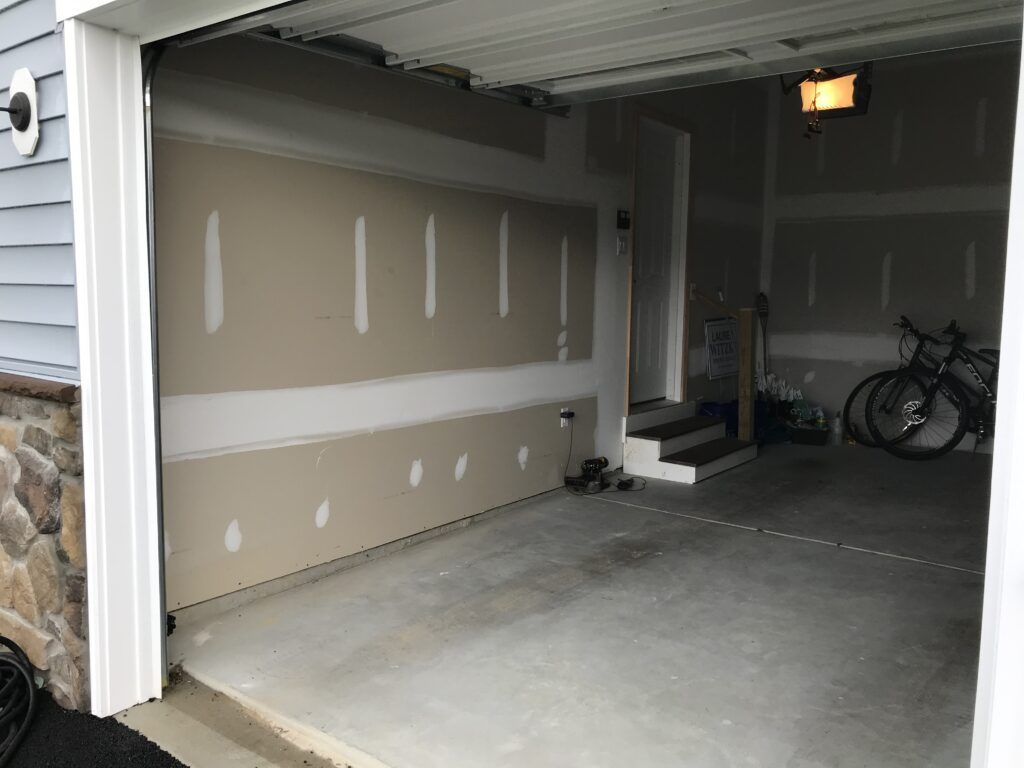My wife and I have sold two properties, a condominium, and a house, and wished we had been better prepared for this emotionally exhausting experience. It would have been nice to know these 10 mistakes to avoid when selling your home.
Selling your home may be one of the most challenging things you’ll ever do. It takes a lot more time than you may think, and it can be surprisingly very emotional.
If you are lucky and your house is desirable, you’ll start seeing strangers walking all over your home scrutinizing and criticizing everything as if they were in a shopping center. You’ll hear things like the bathroom tiles not being white or polished looking all the way down to how many scuff marks there are on what should’ve been perfect hardwood floors in some rooms.
And then, to add insult to injury, they might even offer less money than you asked. You try to keep your cool, but it is very hard. It is personal; heck, it’s your life they are criticizing!
Selling your home can be a nerve-wracking experience for first-time sellers. But with some know-how, you’ll avoid many of the mistakes that less seasoned homeowners make. Read on to find out mistakes you need to avoid, from letting your emotions take over to insisting on getting the asking price regardless of market conditions.
1. Letting Emotions Take Over
It’s not easy to say goodbye to your home. We thought it would be easier the second time around. We were wrong –in fact, it was harder the second time because we felt that house would be our ‘forever home.’
You spent countless hours looking for just the right place, saved up and finally made enough of a down payment for it, and then furnished it entirely on your own – all so that one day this could be yours!
However, once you decide to sell your home, you need to look at it as a transaction from a purely financial perspective. Remember that while the house will be gone, your memories will stay forever as you move onto your next adventure in life. The buyer, in turn, will also be in the process of creating their own memories.
And despite all the criticism you may have heard during the selling process, remember that they wouldn’t buy it unless they liked it. So, the buyer will probably take care of your house the same way you would.
Letting go of emotions was easier for me than for my wife since my whole career has been banking, audit, and risk assessment.
2. Selling The House Yourself When You Have no Experience
As mentioned, selling a house can be an overwhelming and stressful process. If you are considering selling your home, you might wonder if it is better to hire a realtor or go the DIY route. Let’s go over both scenarios.
Sell Your Home Yourself
It’s never been easier to sell your home on the internet. Just post a few pictures and basic information about your property, set an asking price, then sit back while potential buyers contact you with offers. You control the process, but you also have to handle everything.
I was very surprised when we moved to Delaware of how many houses you see with the “Sale by Owner” sign. I don’t remember seeing a sign like that for a house when we lived in the Los Angeles area.
If you’re the patient sort and willing to invest in learning about real estate, this may be a good option. You’ll save on fees by avoiding hiring an agent or using a realtor. Plus, with full control of negotiations with buyers, you won’t be pressured into selling until you are ready.
The cons include going through all paperwork yourself, which takes time and knowledge. You will also have to deal with potential buyers or investors without help because they have questions only professionals would know.
You also risk losing perfectly qualified buyers if they don’t feel comfortable buying property from someone who has not sold any real estate previously.
Using a Real Estate Agent or an Independent Realtor
Trust in the power of a professional agent when it comes to selling your home. With an engaged realtor, you can rest easy knowing that he or she will do all the work for you and ensure that only qualified buyers are shown through.
You might be looking at this as your best option if you want minimal involvement with what is usually considered one of life’s most stressful undertakings: putting up our homes on sale!
The advantage? You don’t have to lift a finger. Instead, your realtor will take care of everything from advertising listings, right down to ensuring those interested parties are serious about buying and won’t waste time returning after viewing ten other properties.
The downside is that you don’t know how much an agency or a realtor will promote your home until you start using their services. You usually have to enter into a contract with the agency or realtor for service, so it might be necessary to keep them as part of your team for a while before deciding they are no longer needed.
Real estate agencies will typically charge 7% of the selling price. At the same time, an individual realtor might negotiate for a lower fee or set a more affordable initial asking price to make it easier on prospective buyers.
The right agency or agent can be invaluable if you don’t have time to promote and show off your home yourself. They’ll save you from any potential headaches in exchange for taking some of the profit away from what would otherwise go into your pockets.
3. Hiring a Realtor Not Familiar With Your Area or Your Type of Home
If you decide to go with a real estate agent, you can’t just hire anyone out of the street that may do a worse job than you alone. You obviously need to hire a professional individual with good qualifications.
But you also want to make sure the real estate agent is knowledgeable about your area, regardless if you are a buyer or seller. If they don’t know what’s going on in town, it might not be wise for them to handle your property because that could mean losing potential buyers and wasted time.
A realtor not familiar with your area may have a hard time with negotiations when people realize how little knowledge he/she has about your home market within your territory.
Familiarity with your type of home is also essential. Condos, mobile homes, duplex, and two-story homes are very different properties. An agent who regularly sells properties similar to yours is more likely to do a good job of selling your property quickly for the right price.
4. Not Staging Your Home
Getting your place in tip-top shape before you put it on the market is a new stress added to an already stressful time of selling. Unfortunately, staging your home is a must in a competitive market.
The benefits of staging your home are no longer just about making it look nice. It’s all about appealing to potential buyers and doing whatever you can to make them want to buy what they see when they walk in the door.
Based on the 2019 Profile of Home Staging study conducted by the National Association of REALTORS® Research Group, properly staging a home has a great positive impact on the buyer.
The study shows that 83% of buyers’ agents said that “staging a home made it easier for a buyer to visualize the property as a future home.”
The following table shows the impact to buyers viewing a staged home based on the above study.
| % of Buyers Impacted | Type of Impact |
| 83% | Easier to visualize property as future home |
| 38% | More willing to walk through home they saw online |
| 37% | Will positively impact home value if home decorated to buyer’s taste |
| 23% | Overlook other property faults |
| 7% | Will negatively impact home value if home decorated against buyer’s taste |
| 3% | Are more suspect of home features |
5. Neglecting to Clean Up Clutter
You might not think you have clutter because you are staging your home, but it’s important to declutter the places that may go unnoticed. A potential buyer will be able to tell if there is extra stuff in a room or out-of-place items in your basement or garage, and they are likely to walk away from an offer without giving much thought.
6. Not Checking Your Home’s Curb Appeal
The exterior’s look and feel tell people what to expect on the other side of that front door. At a minimum, it’ll tell whether or not someone wants to take a peek in.
You want people looking at your home you’re selling to stop by and take a look inside before passing them off as not worth their time. So if you want people to see what’s going on in there (or just get an offer!), then make sure yours stands out from all those other houses!
7. Missing or Using Low-Quality Listing Photos
We nearly missed out on the house we ended up buying in Pasadena, California, because it had no pictures of the second floor. It was a big mistake by the seller’s agent, which probably benefitted us since we decided to see it even though based only on photos, this place looked half as large! I am sure they lost potential buyers just because of that.
You might think that it’s bad to forget to include pictures of a whole floor, but showing bad quality photos is just as terrible.
Hiring a professional to take your listing photos can make all the difference, as they will be able to produce high-quality images.
Poor-quality pictures from a cell phone or cheap camera may seem like an affordable option at first glance. But it may be costly in the end as it won’t impress potential buyers if you’re serious about selling quickly and for more money.
Your realtor should be able to recommend a good professional to get you the right pictures.
8. Not Fixing Big Problems to Save Money
You’re out of luck if you think that not fixing big problems with your property can go unnoticed and have no consequences. Unfortunately for you, if you want to go this route, most competent inspections uncover material issues that need remedy.
State disclosure laws differ, but in general, they require sellers to “disclose all material defects” in a property. If they forget, the sale is invalid and can be canceled by the buyer if they discover any material undisclosed flaws.
You have decided not to hide the problem. Wise decision! These are three options to handle this:
- Fix the problem beforehand, and you don’t have to disclose it
- Another option would be pricing your house below market value so that you can account for any repairs needed to be completed by the buyer
- The third option would be offering an incentive to the buyer (usually a credit) to cover the cost of the issue
9. Selling at the Wrong Time
Did you know that your house’s price can change depending on the month of the year it is sold? It turns out that homes sell best in the summer months of May, June, and July, while August is not as good. That is according to a study completed by Attom data solutions.
For many families, the start of the summer is the time of the year when they are free to start thinking about buying a home. This gives sellers an upper hand in price negotiations because real estate becomes more scarce, which means lower inventory to choose from.
According to the study, you want to avoid winter and fall to get the best premium on your sale.
10. Insisting in Getting an Unreasonable Asking Price
Maybe your buyers are out there, but you don’t see any of them. All because you listed your house too high, and now everyone thinks you either suck at math or have a big ego. As a result, no one is coming to your showings.
Obviously, you want to sell your house for as much money as possible. And it’s tempting to go with an above-market price, but that is seldom a good pricing strategy. If you use this strategy, you have to be ready to react quickly, cut the price, or risk being in the market for a long time.
On the other hand, if you price your house too low, you may sell quickly, but you’ll never know if you could have got a better price. This strategy, however, worked well when we sold our condo in West Los Angeles. We listed it at $30,000 below market, which attracted a lot of foot traffic and triggered a bidding war, which benefited us. We ended up selling for $40,000 over the Zillow estimate.
Just because it worked for us then doesn’t mean that it will work for everyone. It’s no easy task to know what strategy is best to use for every situation. That’s why it helps if you have a competent realtor who knows the area and can help guide you through this process. But if you want to list your house high, be ready to pivot quickly if things don’t go as planned, or you could lose a lot of money.
Video Summary
I have created a quick summary video for this blog post. If you like this video, consider subscribing to the House Notebook Youtube Channel.
Related Posts:



